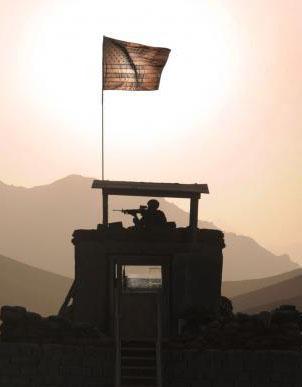PROVIDENCE, R.I. [Brown University] — The Costs of War project at Brown University has released a new paper on U.S. aid to Afghanistan during the 13-year war. The paper, U.S. Reconstruction Aid for Afghanistan: The Dollars and Sense, is co-authored by Catherine Lutz, the Thomas J. Watson Jr. Family Professor of Anthropology and International Studies and director of the Costs of War project at Brown’s Watson Institute for International Studies, and Sujaya Desai, an organizer with Change Corps, a training program in grassroots activism.
Drawing on U.S. government investigative reports and field-based scholarship to ask what aid dollars have actually accomplished, Lutz and Desai find that the majority of the $104 billion in U.S. aid to Afghanistan through fiscal year 2014 — about 70 percent — has gone to funding, equipping, and training the Afghan police and military and to counternarcotics operations rather than to non-security sectors such as education, transportation, and health care. They also find that a significant amount of U.S. aid money has been squandered, left unaccounted for, or has had unintended negative consequences.
The full paper can be found on the Costs of War website.

